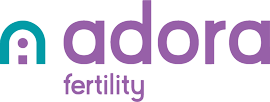What is Egg Freezing?
If you are thinking about having a family one day, but aren’t ready now, egg freezing could be an option for you. Egg freezing is a method of collecting, storing and preserving your unfertilised eggs so they can be used when you are ready to start a family. Egg quality and quantity diminishes with age so egg freezing can be a viable option for those women who are at their most fertile, but not yet ready to have a baby.
Age is one of the biggest factors affecting your ability to conceive naturally. You are born with all the eggs you will ever have – this is known as your ovarian reserve – and as you get older, this reserve of eggs gradually reduces. At the same time, the quality of your eggs declines, even more rapidly once you reach your late 30s, making it harder to naturally conceive the older you get.
Generally, high ovarian reserve and a high percentage of genetically normal eggs
Strong chance of conceiving each month
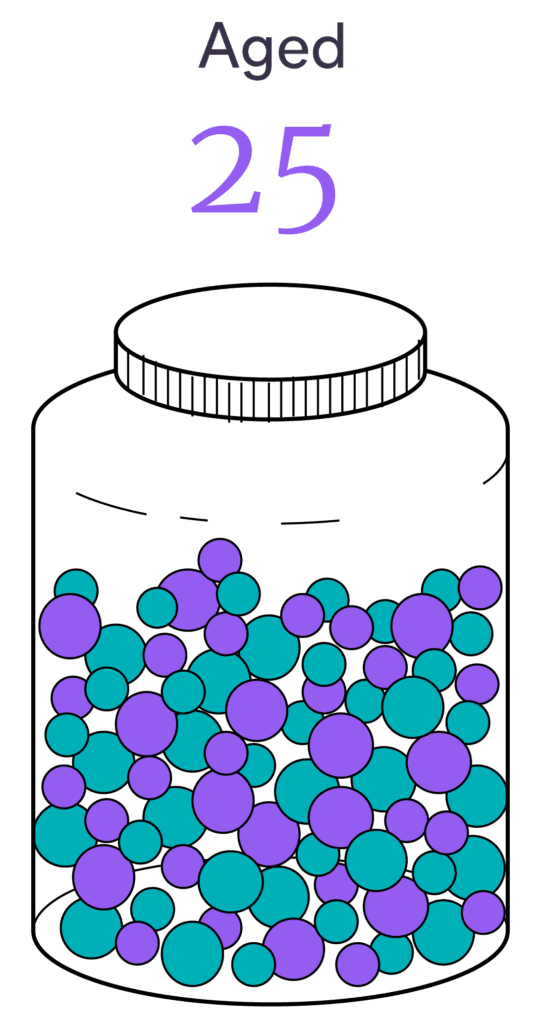
Typically, fewer eggs and each egg is less likely to be genetically normal
More difficult to become pregnant
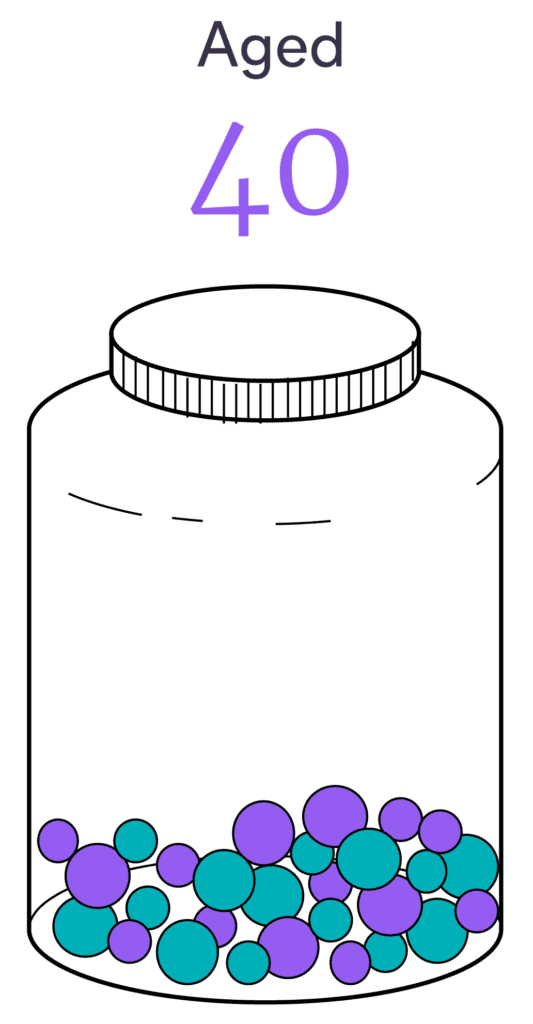
You can’t stop this decline in fertility but you can freeze your eggs and frozen eggs don’t age. Many women wonder how long eggs can be frozen. We are able to store frozen eggs for many years without it affecting their quality. In Australia, the period of time that eggs can be stored varies depending on applicable state and territory legislation. Scientifically, there’s no time limit on how long eggs can stay frozen.
Egg freezing gives women greater reproductive choice without worrying about their biological clock or social pressures to start a family.
Deciding when to freeze your eggs depends on your personal circumstances and factors such as your age and health.
It can be difficult to know when the right time is to freeze your eggs and this is a very personal decision. Generally, the younger you are, the better it is to freeze your eggs because that’s when egg quality and quantity are best. We would always recommend talking to a GP or Fertility Specialist who can provide tailored medical advice specific to your situation.

What is the Egg Freezing process?
01
Fertility Assessment
To begin, your first appointment will be with a Fertility GP, who will discuss your options and review your medical history. Your GP will ask you to undergo some blood tests and an ultrasound to check key fertility markers.
Once all your results are back at the clinic, you will be given an appointment with an Adora Fertility Specialist. After discussing treatment options, your Fertility Specialist will tailor a program to ensure the most optimal outcome for you.
It is at this point that your doctor will advise if your cycle is eligible to be covered under Medicare. Medicare eligible patients are usually those who are suffering from serious medical conditions such as severe endometriosis or who may be undergoing chemotherapy.

02
Medication
During an egg freezing cycle you will need to inject yourself with follicle stimulating hormone (FSH), to stimulate the ovaries so that multiple follicles grow. It’s the follicle that contains the egg, however it is important to note that not every follicle will contain an egg.
Other injections used include antagonist or agonist injections and the trigger injection. Antagonist or agonist injections prevent ovulation occurring to protect the eggs from being released from the follicles as they grow.
The trigger injection is given just prior to egg collection to start the process of ovulation and prepare the eggs to be collected during the egg collection procedure or oocyte pick up (OPU).
Injections are given for approximately 10-14 days, however every woman is different and every cycle is different. Your treatment plan will depend on how quickly your follicles grow to be the right size to have mature eggs collected.

03
Consultation with Fertility Nurse
Following your fertility assessment, you will consult with a Fertility Nurse who will guide you through the entire process of your treatment cycle, including medications and how to administer them.

04
Treatment Cycle and Monitoring
On day one of your period, you will be asked to contact the nursing team. Your nurse will instruct you to have a blood test. Once your results are back at the clinic and reviewed by your Fertility Specialist, you will receive further information on when and how to use your fertility medications. Your Fertility Specialist will manage your egg freezing cycle and the Adora nursing team will closely monitor your progress under the guidance of your Fertility Specialist.

05
Egg Retrieval Procedure
When your follicles, the sacs that contain the eggs are a certain size, it indicates that they contain mature eggs which are ready to be collected. It’s then time for your egg retrieval. Your egg retrieval / collection procedure will be performed in a fully-accredited day surgery under the care of a Fertility Specialist. The procedure is performed under light general anaesthetic, so there will be minimal pain or discomfort.
Most women find that they are able to go back to work within a day or two after the procedure.
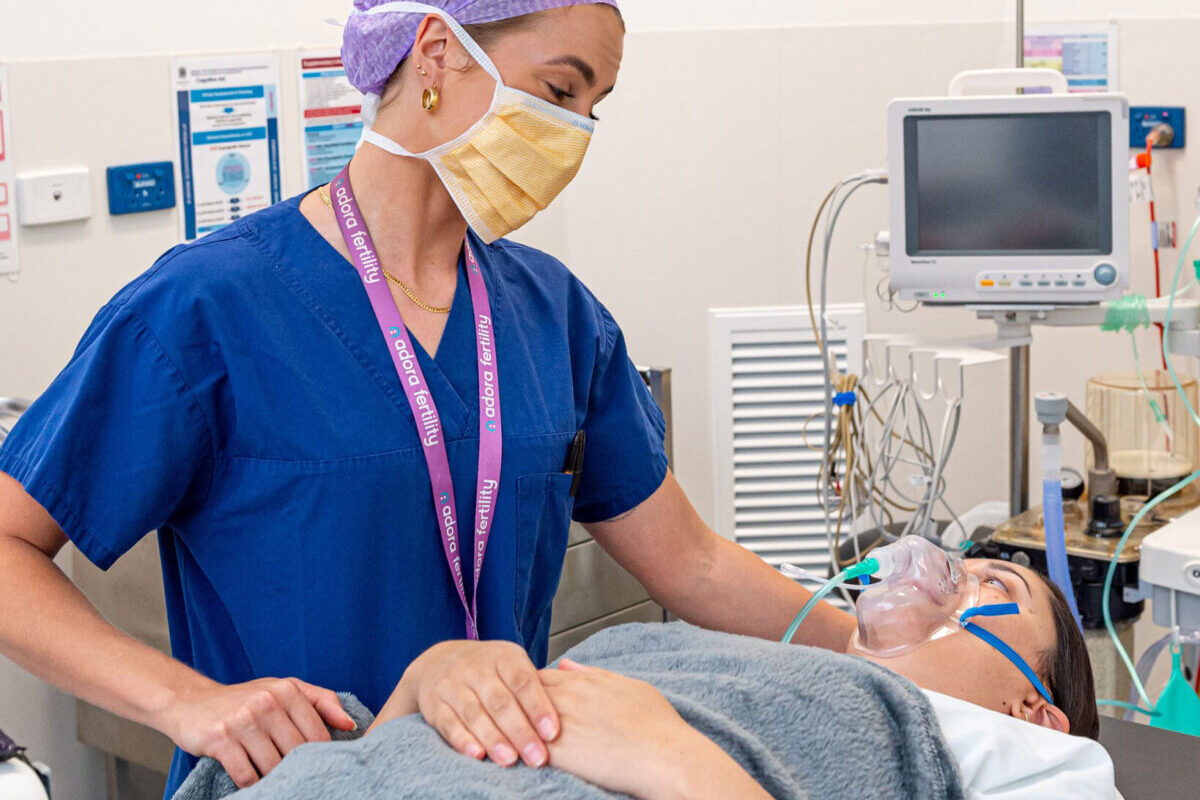
06
Vitrification and Cryopreservation
The collected eggs are assessed for their maturity.
The mature eggs are then frozen in our lab by our team of scientists and embryologists. Once they are frozen, they remain in storage until you are ready to use them.
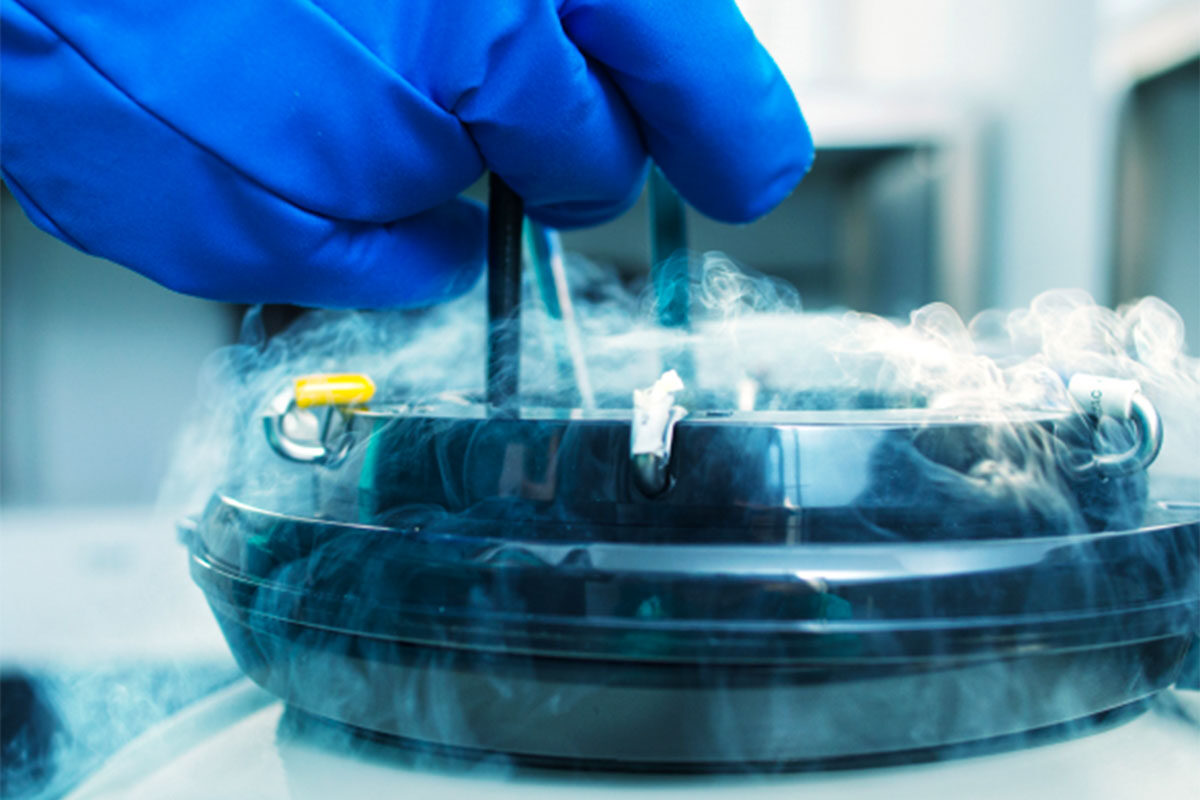
Success Rates
Undergoing egg freezing is a safe and established treatment. It’s important to understand your chances of success when you use these frozen eggs in the future.
Using markers of ovarian reserve, such as your AMH and Antral Follicle Count on ultrasound, your Fertility Specialist will optimise your treatment plan to maximise the number of good quality mature eggs that can be retrieved. Your Fertility Specialist may recommend you undergo more than one egg freezing cycle to increase your chances of success. Only mature eggs are frozen, and not all eggs that are retrieved are mature.

Egg Freezing Costs
| Service or treatment | Estimated out of pocket expense |
| Elective Egg Freeze Cycle – Initial | $4,000 |
| Elective Egg Freeze Cycle – Subsequent | $3,700 |
| Medications | Approximately $1,500 |
| Day Surgery Facility Fee and Anaesthetist | Dependent on location |
| Monthly Egg Storage Fee | $49 |
